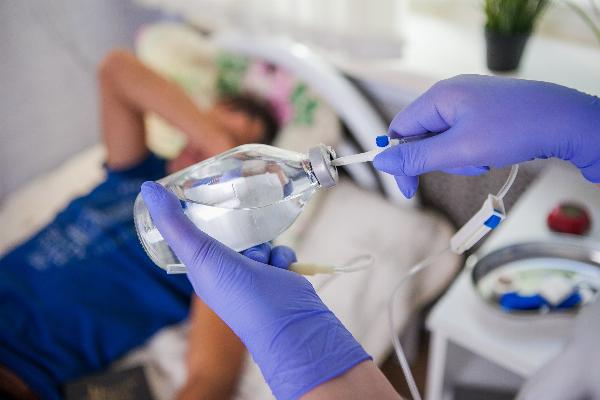 Core Web Vitals Boost – Speed Up Your Site & Your SEO!
Core Web Vitals Boost – Speed Up Your Site & Your SEO!
Art Therapy: Creative Healing in Recovery
Written by alex » Updated on: June 17th, 2025

Art therapy has emerged as a powerful tool in the recovery process, offering individuals a unique and creative way to heal from addiction and mental health issues. By integrating artistic expression with traditional therapeutic techniques, art therapy provides a holistic approach to recovery that addresses both the emotional and psychological aspects of healing. This innovative form of therapy has been shown to help individuals explore their emotions, reduce stress, and gain a deeper understanding of themselves.
Compassion Behavioral Health: A Holistic Approach to Wellness
Compassion Behavioral Health offers a holistic approach to mental health and addiction treatment, focusing on the well-being of the whole person. This facility emphasizes empathy, understanding, and personalized care, creating a nurturing environment where individuals can heal and grow.
What is Art Therapy?
Art therapy is a form of psychotherapy that uses the creative process of making art to improve a person’s physical, mental, and emotional well-being. It is facilitated by trained art therapists who guide individuals in using various art materials and techniques to express their feelings and thoughts. Unlike traditional talk therapy, art therapy allows individuals to communicate in a non-verbal way, making it especially beneficial for those who find it difficult to express themselves through words.
Benefits of Art Therapy in Recovery
Emotional Expression and Regulation: Art therapy provides a safe and non-judgmental space for individuals to express their emotions. Creating art can help people release pent-up emotions and gain insight into their emotional states. This process can be particularly therapeutic for those who have experienced trauma or struggle with intense emotions associated with addiction.
Stress Reduction: Engaging in creative activities has been shown to reduce stress and anxiety. The act of making art can be meditative and calming, helping individuals to relax and focus their minds. This can be especially helpful during the early stages of recovery when stress levels are typically high.
Self-Discovery and Insight: Art therapy encourages self-exploration and can help individuals gain a deeper understanding of themselves. Through the creative process, individuals can uncover hidden thoughts and feelings, leading to greater self-awareness and personal growth. This insight can be crucial for understanding the root causes of addiction and developing strategies for long-term recovery.
Improved Self-Esteem: Creating art can boost self-esteem and confidence. Completing a piece of art gives individuals a sense of accomplishment and pride, which can be particularly empowering for those who have struggled with feelings of worthlessness or low self-esteem as a result of their addiction.
Building Resilience: Art therapy can help individuals develop coping skills and resilience. The creative process involves problem-solving and decision-making, which can translate into improved coping mechanisms in everyday life. Learning to navigate challenges in art can build the resilience needed to face obstacles in recovery.
Enhanced Communication: For some individuals, verbal communication can be challenging. Art therapy provides an alternative way to express thoughts and feelings, making it easier for individuals to communicate with their therapists and peers. This can lead to more effective and meaningful interactions in the therapeutic setting.
How Art Therapy Works
Art therapy sessions are typically led by a licensed art therapist and can take place in individual or group settings. Sessions may involve a variety of artistic activities, including drawing, painting, sculpting, and collage-making. The art therapist provides guidance and support, but the focus is on the individual’s creative process rather than the final product.
During a session, individuals are encouraged to create art that reflects their inner experiences. This might involve exploring themes related to their addiction, emotions, or personal challenges. After creating their artwork, individuals may discuss their creations with the therapist, gaining further insight into their thoughts and feelings.
Art Therapy in Different Stages of Recovery
Art therapy can be beneficial at various stages of the recovery process:
Detoxification: During detox, individuals often experience intense physical and emotional discomfort. Art therapy can provide a distraction and a means of expressing feelings that are difficult to articulate during this challenging time.
Early Recovery: In the early stages of recovery, individuals are working to establish new routines and coping mechanisms. Art therapy can help them explore their identities and build self-esteem as they navigate this transitional period.
Long-Term Recovery: For those in long-term recovery, art therapy can serve as a continuing source of self-expression and personal growth. It can help individuals maintain their sobriety by providing a creative outlet and a way to process ongoing challenges.
Art Therapy Success Stories
Many individuals have found art therapy to be a transformative part of their recovery journey. For example, one person might discover that painting helps them process past trauma, leading to significant emotional breakthroughs. Another might find that sculpting provides a way to manage anxiety and stress, contributing to their overall well-being.
One notable success story involves a woman who struggled with addiction for many years. Through art therapy, she was able to express her deep-seated emotions and gain insight into the root causes of her addiction. This newfound understanding helped her to develop healthier coping strategies and ultimately achieve long-term sobriety. Her artwork became a source of pride and a testament to her resilience and recovery.
Conclusion
Art therapy offers a unique and effective approach to healing in recovery. By providing a creative outlet for expression and self-discovery, art therapy can help individuals manage stress, improve emotional regulation, and gain valuable insights into their addiction and recovery process. Whether used in conjunction with other therapeutic methods or as a standalone treatment, art therapy has the potential to make a significant impact on the journey to recovery, offering a path to healing that is both creative and deeply personal.
Note: IndiBlogHub features both user-submitted and editorial content. We do not verify third-party contributions. Read our Disclaimer and Privacy Policyfor details.
Copyright © 2019-2025 IndiBlogHub.com. All rights reserved. Hosted on DigitalOcean for fast, reliable performance.














